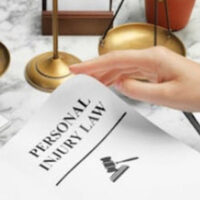Frye and Daubert: Understanding Expert Testimony

Expert testimony is vitally important in personal injury cases. In almost every type of case, there is some level of expert testimony that is needed. But a good personal injury lawyer understands that not every statement by an expert will get admitted into evidence.
Why Do We Need Expert TEstimony?
As a general rule, people can only testify about statements or opinions that they have personal knowledge about. If you saw an accident, you have knowledge of what you saw. If you work in a daycare, you may be able to provide general information about how a daycare operates.
But unless you have some kind of specialized training, you likely don’t have enough personal knowledge to testify about science, chemistry, biomechanics, medicine or many other highly technical fields. But experts do. By their experience, study, or training, they can provide information to a jury that a lay person would not be permitted to provide.
Meeting Specific Standards
But an expert can’t just say whatever they want, even if it’s the expert’s genuinely held opinion. Rather, expert testimony must meet a special standard.
It used to be that an expert’s testimony had to meet what was known as the Frye standard. All the Frye test required is that the expert’s opinions and methodology be one that is genuinely accepted in the scientific community.
If an expert used a text, or a formula, or some type of measurement, as long as that formula or measurement was generally accepted in and used by the scientific community, the expert’s testimony would be allowed into evidence by the court.
But many people thought that the Frye standard was too lenient; that is, that it allowed into evidence too many fringe scientific theories. Many called for a tougher standard that would make scientific testimony more uniform and more mainstream. That change came in the form of the Daubert standard. The federal courts, and many states, including Tennessee, now use Daubert.
Under Daubert, expert testimony is admitted into evidence if:
- The expert’s testimony was based on sufficient facts or data
- The expert used reliable testing methods that are accepted by the scientific community
- The expert has applied their findings properly to the facts of the case
Problems With Daubert
This is a much more stringent standard, and a judge now has to make many more findings before allowing in scientific evidence. In many cases, there are entire hearings that go on before the case gets to trial to determine whether or not the expert testimony meets this standard.
These extra findings often mean more time spent before a case gets to a jury, and more money spent by both sides. It also means that a plaintiff’s expert needs to be ready to support their findings under Daubert, and prepared for the complex challenges to testimony that may arise.
Call the Knoxville personal injury attorneys at Fox, Farley, Willis & Burnette, today if you have suffered any type of injury. We can help you bring your case to trial, if needed.
